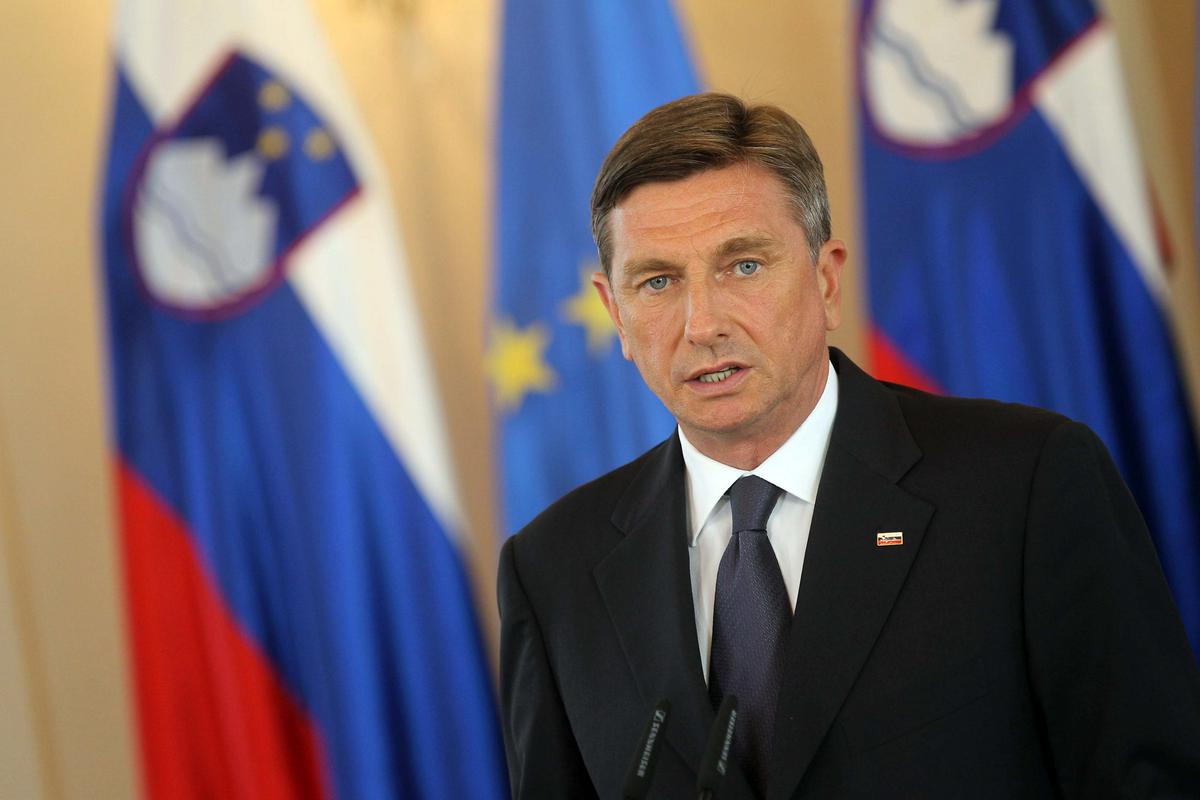
Pahor stressed that the decision to resolve the matter using arbitration was the best possible course of action after 18 years of unsuccessful attempts to resolve the border dispute. Pahor is convinced that, based on previous attempts to resolve the dispute, no other option would have been more favorable for Slovenia.
“I have no doubts that other people may perceive this matter differently, which is normal after every court ruling. But I honestly believe that we will remember today’s decision of the arbitration court with gratitude,” said Pahor. He added that we can hardly imagine the significance of this moment.
Pahor: This is a unique opportunity to resolve the border dispute for good
“We have peacefully resolved an issue that had weighed down the relations between the two countries before the Arbitration Agreement was signed in 2009. After the agreement in Stockholm, we had virtually no more incidents of the kind we had been seeing for 18 years. Over the past eight years, Slovenians and Croatians have gotten used to peace, security, good neighborly relations, and an admirable friendship,” stressed President Pahor.
Pahor also said that the unilateral rejection of the ruling by Croatia does not absolve the country of the responsibility to abide by the decision. “Slovenia will strive for the implementation of the ruling through dialog,” said Pahor, and added that both countries have a unique opportunity to resolve the issue forever and get rid of a source of potential tension and instability.
As early as tomorrow, Pahor will meet with Croatian President Kolinda Grabar-Kitarović in Dubrovnik, where no changes to the two countries’ positions are expected. Pahor added that both heads of state have agreed that dialog has never been as important; that’s why the two sides have decided to meet. The implementation of the agreement will require a significant effort, Pahor said, and added that the process will demand political wisdom and patience.
Cerar: The dispute has weighed down relations between two countries for far too long
“This is a historic moment for Slovenia,” said Prime Minister Miro Cerar and added that he will strive to get wide acceptance of the ruling, even though not all of Slovenia’s expectations have been met.
The Prime Minister added that the tribunal consisted of the most respected and independent international law experts. He added that the ruling is legally binding for both countries. “The unresolved dispute has weighed down relations between the two countries for far too long,” said Cerar and added that it is now vitally important to provide people who live along the border with answers to questions about their everyday lives.
Cerar recalled that the two countries had made multiple unsuccessful attempts to resolve the issue. The lack of success prompted them to turn to an impartial court of law. The two sides signed an agreement in 2009 after an intervention by the European Commission.
Cerar: The ruling is in effect
Commenting on the decision of the Croatian Parliament to unilaterally withdraw from the arbitration agreement, Cerar said that the court had considered Croatia’s objections regarding the improper communication between the Slovenian agent and the Croatian arbiter and determined that “the agreement is still in effect.”
“The ruling is comprehensive and complex, so we will need to study it over the following few days. Only then will we be able to make the next steps,” added Cerar.
Erjavec: This is a competent decision
Foreign Minister Karl Erjavec stressed that today was a historic day for Slovenia. “The decision was based on law and expert knowledge; it wasn’t a political ruling,” Erjavec said in a conversation with Radio Slovenia. Erjavec expects Croatia to respect international law. He is convinced that the country will eventually realize that its decision not to participate in the process and present its arguments was a mistake. “We in Slovenia aren’t universally satisfied with the ruling either,” added the Foreign Minister.
Among other things, Erjavec regrets that Joško Joras will remain on the other side of the border. He is also less than pleased with the decision regarding Hotiza, where the border will be based on the cadastral survey. However, all indications are that the court made its ruling based on the principles of fairness, good neighborly relations, and international law, added the Foreign Minister.
Luka Lukič; Translated by J.B.


































































